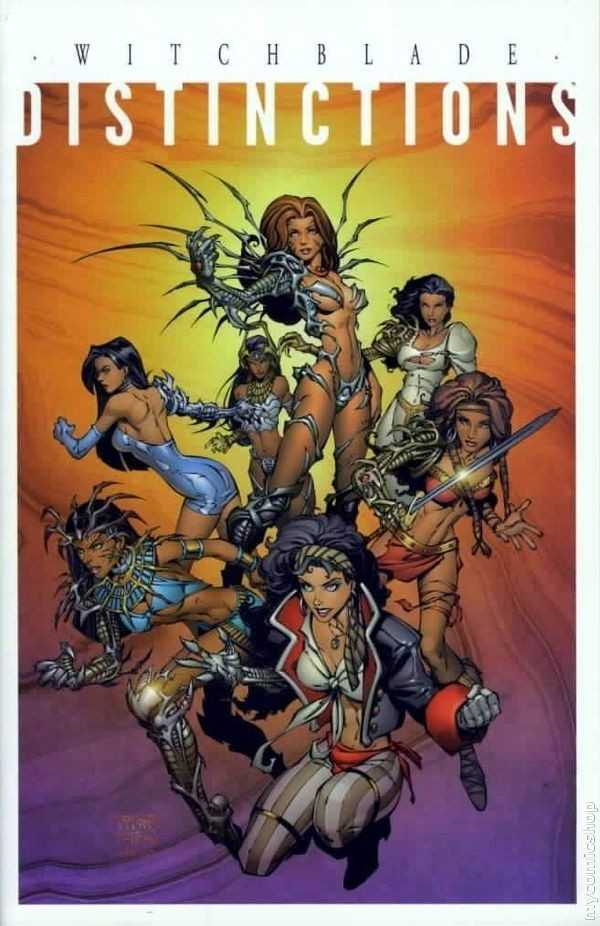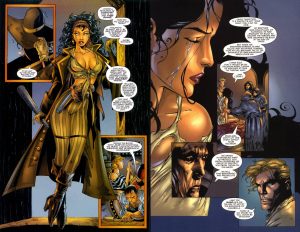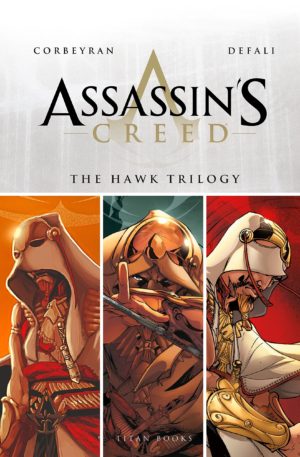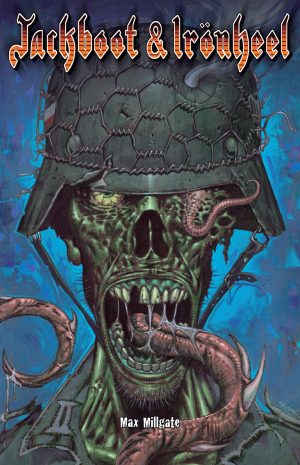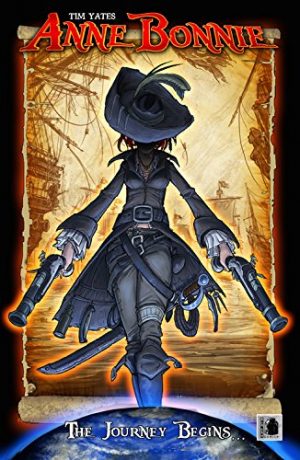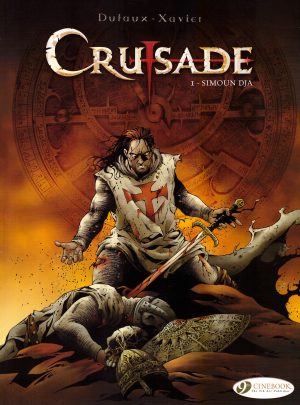Review by Frank Plowright
When Sara Pezzini became the most recent bearer of the Witchblade in the late 20th century, it was established there had been a lineage, and she was far from the first to merge with the weapon. Distinctions takes a look at some of the earlier incarnations.
Originally published not very long after the first Witchblade appearances, it takes the same approach, presenting relatively simple stories with one-dimensional characters acting as vessels for the Witchblade, which empowers them in moments of desperate need.
The art is what comes to mind when thinking of 1990s Image Comics. It’s vastly over-rendered, images prioritised over the story, and ridiculously proportioned women are posed exploitatively at every possible opportunity. Although his pages broadly conform to that, early in his career Richard Bennett’s talent shines with his depiction of a Mayan civilisation. He puts great effort into ornate architecture and fittings, although more ordinary pages become more frequent as the story continues. Brian Ching also makes an effort with decorative detail, but his people are shocking specimens. The left sample art is the work of then plain Tony Daniel, a seemingly floating fantasy woman supposedly representing the pirate Anne Bonny. Daniel’s wildlife is great, mind. Billy Tan provides the other sample art, again with an eye for the ornate, but some wonky people. All four other artists (along with Tan) provide a couple of pages for the final story, written by Finch, who could draw better than any of them, even then, and one of them is really terrible, with no sense of anatomy or how to lay out a page. As the credits don’t break down the art per page they can remain relatively anonymous.
Warren Ellis departs from the template, firstly by looking forward rather than back, as a Detective John Chimu investigates a strange murder in a future where life is prolonged, and secondly by being more explicit. His bearer of the Witchblade revels in sex. However, it might feature a neat idea, but no-one behaves in any way realistically, making Ellis’ work as sordid as the remainder of the package. His is the only story to extend beyond a single chapter.
Sales of the original Witchblade comic are testament to an awful lot of people not caring about the basic stories and problematic art, and all the comments about it will make no difference to their enjoyment. Anyone else coming to Distinctions cold, or asking themselves how bad it can be with Ellis writing a third of it won’t be as pleased. An alternative is that four of the six chapters are included in the first The Complete Witchblade.
